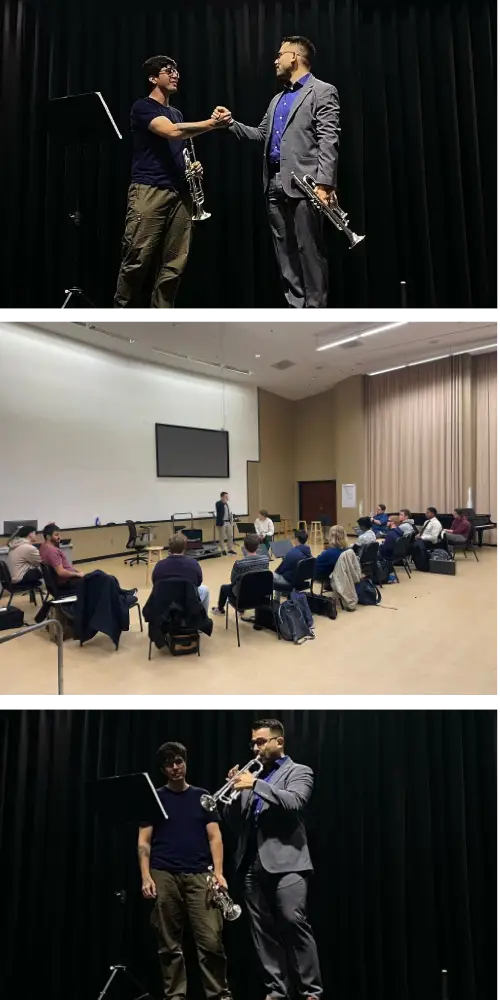Teaching philosophy

Teaching Philosophy Statement
Musicianship, professionalism, personality, and work ethic are essential areas for a student to develop. As a teacher, it is my responsibility to help them achieve these goals. I do my best to guide students toward success in these areas by introducing new ideas, encouraging research, and leading by example. This approach ensures that students are prepared for the professional world. I also make a conscious effort to stay updated by researching and engaging with the trumpet community, ensuring I have the right tools to support my students effectively.
My teaching philosophy is centered on understanding each student's goals or helping them discover what they want those goals to be. By knowing what they want to achieve, I can help them work towards it. At the same time, I believe it's important to introduce students to areas of music they may not be familiar with, as this can broaden their skills and support their progress towards their main goals. This way, the student becomes more versatile, a quality that the music industry values.
Balance is essential in life, and music is no exception. I believe that by getting to know each student and understanding their individual needs, we can create a personalized routine that suits them. Maintaining balance in the student's routine is essential. Throughout the semester, I aim to build a practice plan that includes both technical and lyrical exercises. Early on, the focus is on technical drills to build strength and develop technique. As the semester progresses, we gradually shift the emphasis toward repertoire.
As an educator, I encourage my students to play in a healthy way with consistent air flow, focusing on eliminating tension and strain so they can perform with freedom in their sound. This approach helps them feel more comfortable and confident during performances. One of the main methods I use is singing and listening. While singing may not come naturally to all students, it can be developed through targeted exercises. Listening to top musical references helps provide an example of high-level music-making, while listening to themselves offers students valuable opportunities for self-reflection and improvement.
As the student becomes more aware of high-quality musical references, they will naturally start making better musical choices in their playing. Ultimately, the goal is for the student to become progressively less dependent on me, so they can teach themselves and be ready to follow their own path as musicians.



For information about lessons or events, contact-me.
